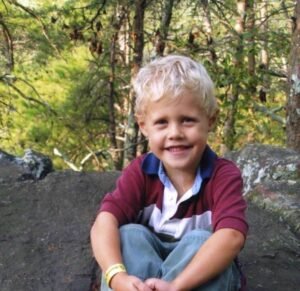 I was recently asked to write an article for Pediatric Research, a journal about, well…pediatric research! They were publishing a study that looked at the impact of fetal alcohol exposure on growth rate, and apparently they like to publish companion pieces to the research written by the people, like me, a mom.
I was recently asked to write an article for Pediatric Research, a journal about, well…pediatric research! They were publishing a study that looked at the impact of fetal alcohol exposure on growth rate, and apparently they like to publish companion pieces to the research written by the people, like me, a mom.
They asked me to tell a little of our story and to let future researchers know what was one thing our community needed that was lacking, and I was also to post about what kind of research we’d like to see.
Here’s what I wrote, in case you want to read it “Family reflections: parents and caregivers of people with FASD: what research do we need?”
If you look at the piece, I said one area where we need more support is in diagnostics. Research could look out why there was so little diagnostic access for people and families impacted by FASDs. The fact that 99% of people with FASDs are not diagnosed or are misdiagnosed is truly a tragedy.
That said, I certainly don’t think that’s all the research we need when it comes to FASD. Current research that examines how people with FASDs can get better support and services leading to better outcomes is one step in the right direction, but we need much, much more of that. Documentation of what works – at home, at school, in the world – we need more of this kind of information. How to overcome stigma? How to create programs that force professionals to pay attention? These are all topics we need more on. Without documentation it’s hard to get folks to take the needs of our community seriously. Those of us in it know what we need, but our voices are tiny unless someone with power and prestige writes it down for us and gets it published.
I asked our online parent support group, more topics for researchers, and here’s what they said, in no particular order:
- When it comes to diagnosis, what’s the criteria for burden of proof when diagnosis occurs. What do clinicians count as evidence? This seems to vary from clinic to clinic. What results in the most accurate diagnoses? What helps get us to the best outcomes?
- We know the poor stats around life for adults with FASDs, I think it’d be useful to capture CURRENT outcomes for people with FASDs comparing families/children who have taken a NB (neurobehavioral) approach for 20+ years – what do their lives look like and how does that compare to FASD stats overall?
- How does commonly prescribed meds. for symptoms of FASD play out in people with FASD? We all have stories about odd side effects, super high dosage, atypical responses – it would be helpful to have this information gathered, verified, and disseminated.
- What do great schools who really meet the needs of people with FASD look like, if these even exist? What do great programs look like? What do great community supports look like?
- What’s the impact on siblings and parents dealing with multiple meltdowns, perceptual differences, mood swings, etc.? It seems very closely related to a domestic violence situation at times. How can we reduce trauma on other family members?
- Why aren’t orthodontists and ophthalmologists involved in referring for or confirming of diagnoses?
- What is the different medication reaction in people with FASD? not just psych meds?
-
Are people with FASD more vulnerable to conspiracy theories and extremist behaviors?
-
What are the real life expectancy issues for those with FASD (not the very poorly done study from a few years ago)
-
Why do so many people with FASD not feel cold? What is the biological difference that contributes to that?
-
What % of hoarders actually have FASD?
-
What trauma treatments are more likely to be effective on people with FASD?
-
Are there certain personalities of caregivers that are better able to survive parenting FASD children?
-
What is helpful to help a person with FASD receive feedback?
-
Why is the need for payback so common?
-
What is the best way to improve memory and retention (especially with literacy or math in early years where it kind of sets a trajectory)?
- Why, oh why, is the behavioral world so punitive?
